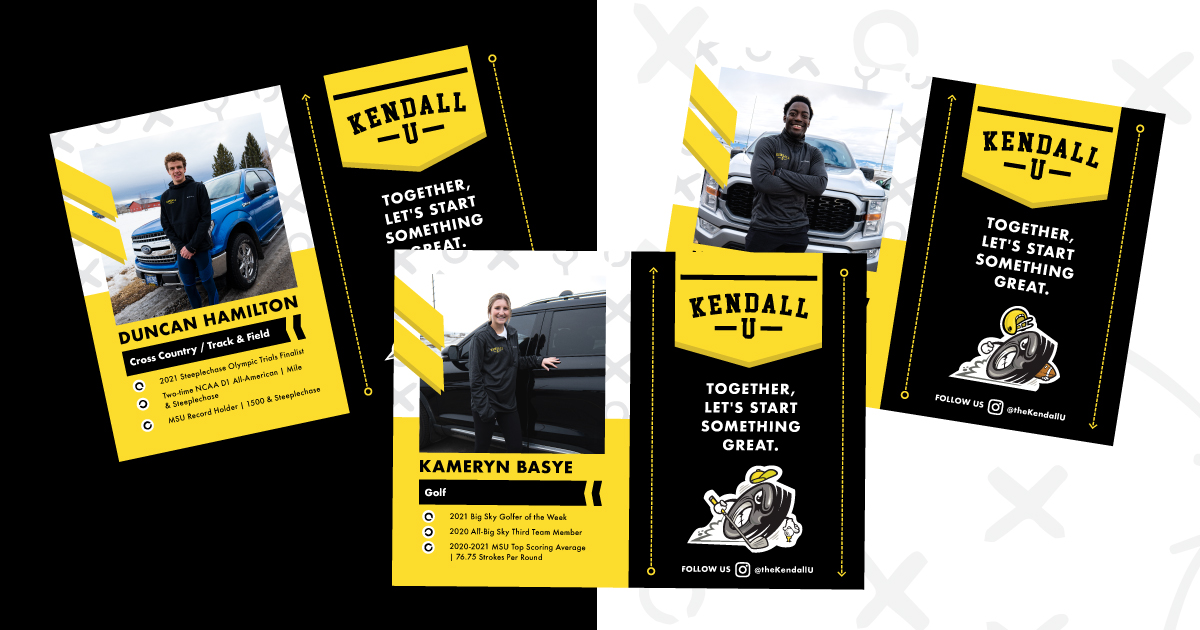2.28.22 | read time: 5.5 mins
10 Things to Know About NIL Regulations
116 & West
Arguably the biggest news story in the 2021 college sports season was the passing of the Name, Image and Likeness (NIL) Policy by the NCAA. By signing this law, the NCAA gave permission to student-athletes across the country to receive payment for endorsements that were previously prohibited.
While most news stories will focus on football players signing deals with national brands for hundreds of thousands of dollars, there are plenty of opportunities for all types of student-athletes. Not every brand can pay what top-tier college athletes are requesting. Smaller companies can work with athletes in less popular sports and compensate them with a range of options, including food, cars, services, and cash.
Opportunities for businesses to leverage student-athletes have increased significantly too. Maybe the neighborhood pizza shop couldn’t afford an NFL player to endorse them, but players from the beloved local football team may be willing to post on social media, or hang out at the restaurant and sign autographs in exchange for free pizza and t-shirts. Before the NIL policy, this would have gotten players in big trouble.
The barrier to entry into “sports marketing” has never been lower. If you’re interested in jumping in the game, our top 10 tips for businesses are below. Please note that rules vary by state and our tips are tailored to our client base in the Pacific Northwest.
1: NIL Activities
NIL refers to a student-athlete earning compensation in exchange for the use of their name, image, or likeness. NIL activities may include, but are not limited to: social media endorsements, commercials, appearances, autograph signings, youth sports camps and other business activities.
2: NIL Approvals
Student-athletes MUST inform and get approval by their athletic departments for all NIL contracts.
Some schools (like Montana State, University of Oregon, Boise State University) have purchased software for student athletes to submit their contracts called INFLCR.
Contracts must be approved 7 days prior to the scheduled sponsor engagement.
3: Benefits
Both parties must receive benefits from the partnership. Student-athletes can be compensated with money, in-kind gear/swag items, free meals, and/or discounts. The only stipulation is that the compensation must be considered market value.
The student-athlete must provide a deliverable to the sponsor. It can come in many forms including social media posts, appearances at events, wearing branded apparel, etc. Student athletes who receive free benefits from companies without providing something to that company in return are breaking NIL rules and could be suspended.
For example, a restaurant manager in Eugene cannot give a University of Oregon football player free food because he is a good football player and they like watching the Ducks win. That restaurant can, however, engage in a contract with a University of Oregon football player and provide him with free meals in exchange for him signing autographs at their location.
4: Pay for Play Rules
A student-athlete cannot be compensated for agreeing to attend a specific college or university. For example, a shoe company cannot pay a student-athlete $50k to incentivize them to attend University of Oregon.
Also, a student-athlete cannot be compensated for participating in any sporting event. For example, a sponsor of a bowl game cannot pay a student-athlete who was planning to skip the game to prep for the NFL $50k to play in the game.
5: Non-enrolled Students
Businesses cannot target athletes who are not yet enrolled in college. Recruiting student-athletes is going to be heavily scrutinized with the new NIL rules to ensure student-athletes are not being paid to attend certain colleges or universities. The easiest way to stay out of that issue is not to target any student-athletes until they are enrolled in classes.
6: Promotion Restrictions
Except for special circumstances, student-athletes cannot use college- or university-protected trademarks such as logos or word marks. Student-athletes cannot use their college or university’s name, nicknames, team names, mascot name, slogans, colors, or other identifying factors without proper licensing.
Content created by the college or university (game photos or video) cannot be used for commercial purposes without proper licensing. Some of the smaller schools may be more relaxed on this, but the big schools are likely to prohibit unlicensed usage.
Student-athletes may not promote any illegal items or items prohibited by their school’s code of conduct. Examples may include alcohol, tobacco, and gambling.
7: Products During Team Activities
During official team activities, student-athletes are prohibited from earning NIL compensation or from participating in NIL activities. Use of NIL products during team activities is permitted in some cases, as long as the use of the product does not conflict with team or university rules.
For example, a student-athlete cannot be compensated for wearing NIL-related product or gear during university sponsored time such as practices or team activities.
Let’s say a granola bar company sponsors an athlete on the women’s basketball team. The company cannot compensate the student athlete for bringing granola bars to her practice and giving them to her teammates. The company can provide her with as much product as they want, but they cannot require her to bring the granola bars or compensate her in relation to any university sponsored activity.
8: Exclusivity
NIL permits student athletes to enter exclusive deals with businesses should the following two requirements be met:
One, the student-athlete must be given clear instruction as to what exactly is permitted and not permitted in that category of exclusivity.
Two, the sponsor must give the student-athlete the ability to be non-exclusive when it comes to team events/university appearances.
For example, if an athletic wear company signs an athlete, but that athlete attends a school sponsored by another athletic wear company, there can be no penalty for wearing their school uniform at official events.
9: Communication Rules
College or university employees and representatives cannot facilitate NIL deals for student-athletes, nor can they provide businesses with contact information for specific student-athletes. The student-athlete or their agent should be contacted directly. University compliance departments can be resources to businesses on what activities are permissible and other NIL questions.
This particular rule varies significantly from state to state.
10: Variability
There is an overarching interim NCAA NIL law, but each state and each institution has the ability to create their own additional rules. Some states have already created their laws while others are following the NCAA interim for now. For the most part they are very similar.
Need More Info?
Whether you are a current/future student-athlete, or a business on the lookout for a student-athlete, it’s important to stay up to date on the policies around NIL.These tips are not all-encompassing, but should get you off to a good start.
If you need guidance as you start an NIL program of your own, hit us up. We are happy to help!


